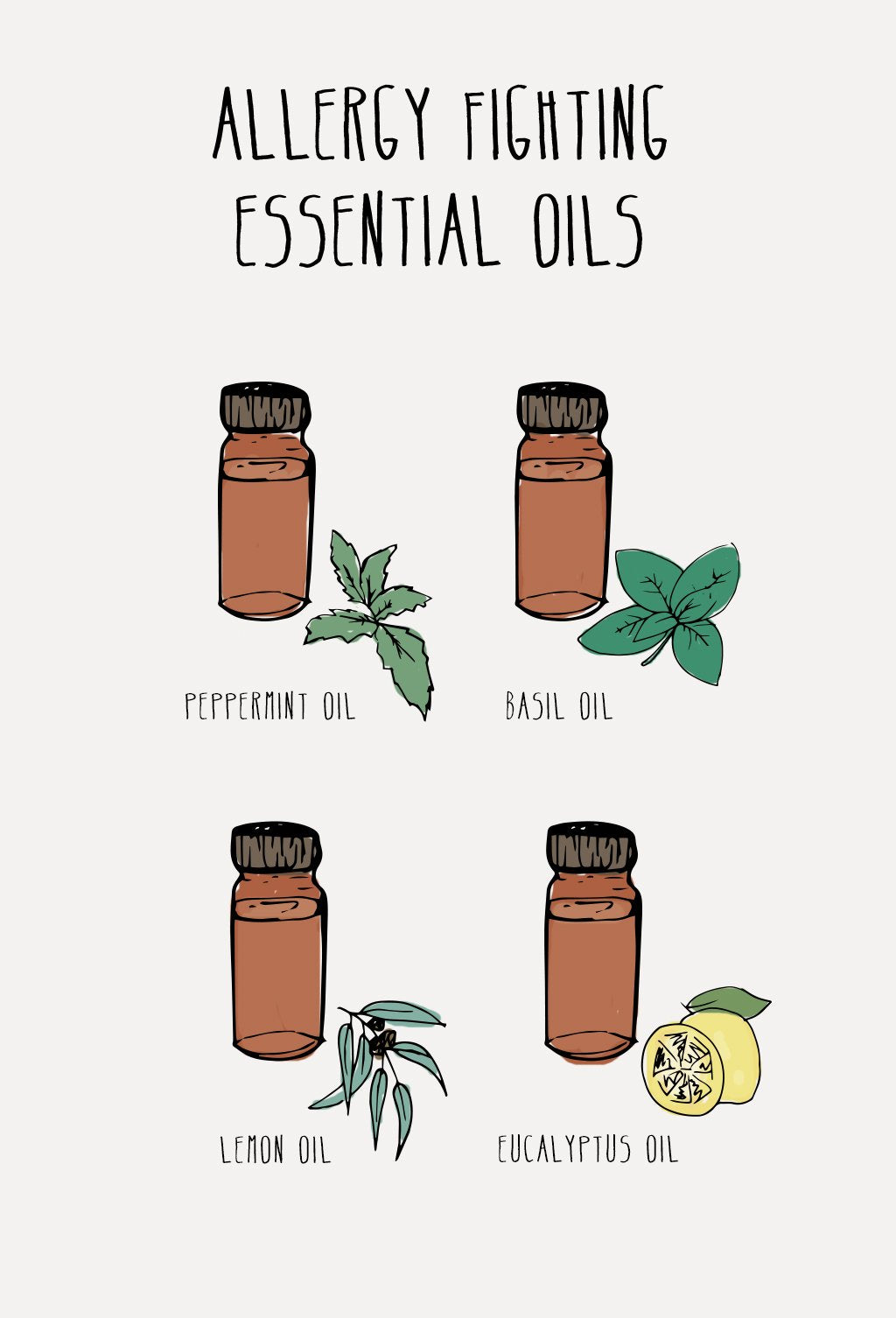
NATURAL WAYS TO TREAT ALLERGY SYMPTOMS (PART 3 OF 3) - ESSENTIAL OILS
 Written by Nikki Roxby
Written by Nikki Roxby
A stressed or compromised immune system can be especially vulnerable to potential allergens, such as dust, mold and pollen. The immune system overreacts to these perceived invaders and produces immunoglobulin E antibodies. These antibodies travel to cells throughout the body, with basophils and mast cells responding by producing histamine. The histamine is involved in the inflammatory response (i.e. the allergic reaction).
To alleviate symptoms you need to reduce inflammation. And to prevent the allergic reaction in the first place, you need to boost immune function. Essential oils can potentially help on both fronts …
1. Peppermint Oil
• Diffuse 5 drops to clear mucous and sinuses.
• Dilute 1-2 drops in coconut oil or jojoba oil on back of neck and temples for headache and to boost energy or on chest to help with congestion.
2. Basil Oil
• Dilute 2-3 drops in equal parts coconut oil and rub topically on temples, back of neck and chest to reduce inflammation.
3. Eucalyptus Oil
• Diffuse 5 drops or apply topically to chest and temples to open up the lungs and sinuses.
• Add 1-2 drops to boiling water and place towel over head and breathe in for 5-10 minutes to relieve congestion.
4. Lemon Oil
• Diffuse 5-10 drops in home to kill bacteria in the air that can trigger allergies.
• Add 1-2 drops to water daily to balance pH and rid the body of toxins that can lead to inflammation. Also helps with exhaustion and mental fatigue.
It is important to know that not all essential oil brands are created equal. Make sure to read the label and understand the ingredients. DoTerra and Young Living are my favorite.
For more information on allergies and essential oils, check out Dr. Josh Axe’s website. I consider him a reliable resource for my family. You will find that he provides relevant and reputable studies that support a decision to use essential oils for yourself and your family.
SOURCES:





 Written by Nikki Roxby
Written by Nikki Roxby

Leave a comment
This site is protected by hCaptcha and the hCaptcha Privacy Policy and Terms of Service apply.